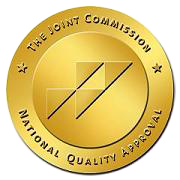
What is bulimia?
Bulimia nervosa – more commonly known as "bulimia" – is an eating disorder characterized by patterns of bingeing (consuming a large amount of food in a short amount of time) and purging (eliminating calories consumed) in order to lose weight. Bulimia is a debilitating condition often accompanied by other mental health issues.

What causes bulimia?
Bulimia is caused by multiple different factors, including biological, psychological and sociocultural. There is no one single cause of bulimia. However, if you have a close relative who struggled with bulimia, you may be more likely to experience symptoms of this eating disorder.

Biological causes of bulimia
While genetic risk plays an important role in the development of bulimia, not all individuals with a family history of this disorder will develop the illness. And, many individuals with no known genetic link to eating disorders develop bulimia.
Genetics
More than 50 percent of the risk of developing an eating disorder is based on your genetics, underscoring a strong familial component to these illnesses. In fact, a woman with a mother or sister who has bulimia is four times more likely to develop bulimia as well.
Personality traits
Personality traits are believed to be inherited, and a distinct set of traits has been found to be common among those at highest risk for bulimia. Traits like the following tend to characterize those struggling with bulimia:
- High impulsivity
- Unstable moods
- Emotional intensity
- Difficulty seeing the “big picture”
- Cognitive rigidity
Psychological causes of bulimia
Psychological factors, in conjunction with biological and social influences, can play an important role in the development of bulimia. We have learned that there are certain characteristics and experiences that are common to individuals with bulimia (including perfectionism, low self-esteem and a history of trauma), that may place a person at greater risk for the illness. These factors are often considered to be maintaining features that contribute to the perpetuation of the illness and can be directly targeted during treatment.
Low self-esteem
When one is experiencing low self-esteem, it can cause feelings of depression which can contribute to the development of eating disorder behaviors. Sources of low self-esteem are varied and can include childhood experiences, temperament styles, and other mental health conditions.
Perfectionism
Perfectionism refers to a personality style where an individual strives for flawlessness, is highly concerned with approval, and may be extremely self-critical regarding performance. Mistakes are often viewed as personal failures – and something to be avoided at all cost. For individuals with bulimia, high levels of perfectionism can be seen within the illness (e.g., strict rules around eating and food) as well as outside of the illness (e.g., extremely high standards and expectations for themselves in academics, work, etc.).
Social and cultural causes of bulimia
Social and cultural factors (social networks, media influence and cultural norms relating to eating and appearance) have been linked to bulimia. This includes the pursuit of the “ideal body” and the overvaluation of appearance as a measure of success and worth.
Messages promoting unrealistic beauty standards that place high value on achieving a certain look (thinness, muscularity) can create pressure to engage in behaviors, like dieting, that place certain persons at greater risk. Other social influences include involvement in specific activities, groups or occupations that emphasize weight and appearance.
Trauma history
Research shows that many patients who are struggling with an eating disorder have experienced a traumatic event in their lifetime [1]. This is particularly true for patients who have bulimia-spectrum eating disorders [2]. Traumatic experiences, with or without a PTSD diagnosis, can lead to disordered eating behaviors as the person attempts to cope with the distressing effects of the traumatic event.
[1] https://www.ncbi.nlm.nih.gov/pmc/articles/PMC3966425/
[2] Brewerton, T. D. (2007). Eating Disorders, Trauma, and Comorbidity: Focus on PTSD. Eating Disorders,15(4), 285-304. https://doi.org/10.1080/10640260701454311
The thin beauty ideal
Western societies equate thinness with female beauty and success, a condition known as the “thin beauty ideal.” [3] Studies have demonstrated that cultural pressures to achieve the thin beauty ideal can lead to increased body dissatisfaction and weight concerns, which may then contribute to the development of bulimia. Western norms for male bodies emphasize extreme muscularity in an equally unrealistic standard. With modern developments like social media, western ideals and values have been disseminated globally. Recent studies have demonstrated increases in eating disorders in non-western cultures as well as minority groups.
[3] Morrissey, R. A., Gondoli, D. M., & Corning, A. F. (2019). Reexamining the restraint pathway as a conditional process among adolescent girls: When does dieting link body dissatisfaction to bulimia? Development and Psychopathology, 32(3), 1031–1043. https://doi.org/10.1017/s0954579419001287
Pressure from social media
With social media being a major influence on culture today, there are many negative effects that can lead to disordered eating and bulimia [4]. Being bombarded with media images of extremely thin models, for example, promotes the internalization of weight stigma and the need to control weight. On social media, there are many images of "perfection", diet talk and before-and-after images that can influence eating disorder development and maintenance.
[4] Rounsefell, K., Gibson, S., McLean, S., Blair, M., Molenaar, A., Brennan, L., Truby, H., & McCaffrey, T. A. (2019). Social media, body image and food choices in healthy young adults: A mixed methods systematic review. Nutrition & Dietetics, 77(1), 19–40. https://doi.org/10.1111/1747-0080.12581
Bulimia symptoms
Bulimia is an isolating, secretive illness that prevents many people from enjoying a full and rewarding life. You might be wondering, how does bulimia start? We review common bulimia symptoms here.

Common bulimia symptoms
What do people with bulimia experience with this eating disorder? Although symptoms may vary per patient, we’ve listed common symptoms of bulimia nervosa below so you can understand this serious condition in more detail.
- Consuming large amounts of food in a short period of time (bingeing)
- Using laxatives, diuretics, ipecac syrup or enemas (purging)
- Over-exercising (purging)
- Trips to the bathroom during or after meals (purging)
- Evidence of binges, including disappearance of large amounts of food or appearance of wrappers/packaging
- Food restriction or fasting
- Feeling “out of control” or shame over how much you eat
- Fear of gaining weight or being “fat”
- Self-esteem and self-worth tied heavily to body shape and weight
- Withdrawal from friends, family and “normal” activities/routines
- Failing performance in school or refusing to go to school
"Bulimia face" and other symptoms to watch for
- Swelling of the cheeks or jaw area (sometimes called "bulimia face" or "chipmunk cheeks"; caused by self-induced vomiting)
- Discolored or stained teeth (sometimes called "bulimia teeth"; caused by self-induced vomiting)
- Calluses on the back of the hands and knuckles known as Russell's sign (sometimes called "bulimia knuckles"; caused by self-induced vomiting)
- Bingeing more than one time per week
- Purging more than one time per week (self-induced vomiting, laxative/diet pill/diuretic abuse, excessive exercise, chewing/spitting of food, or insulin misuse, known as diabulimia)
- Bradycardia and orthostasis (a form of low blood pressure that happens when you stand up from sitting or lying down)
- Low normal to abnormal labs; can include electrolyte abnormalities
The difference between bulimia and anorexia
Bulimia and anorexia are often confused, because people with each disorder can engage in similar behaviors of bingeing, purging, and restricting behaviors. Here are some similarities and differences between the two eating disorders:
- Both eating disorders focus on weight and body image.
- Individuals with anorexia nervosa are commonly underweight, while individuals with atypical anorexia may live in larger bodies.
- A person cannot be diagnosed with both bulimia and anorexia at the same time, although an individual may experience both disorders separately over the course of their illness.
Bulimia symptoms vs. purging disorder symptoms
Bulimia and purging disorder (which is included in the OSFED category of diagnoses) are similar in that individuals with both disorders engage in compensatory purging behaviors. However, people who have purging disorder typically endorse purging after eating an average-sized meal or snack, whereas people who have bulimia more commonly purge following a binge episode.
Read more:
Bulimia health risks
There are many serious health risks associated with bulimia. Bingeing and purging, particularly recurrent and/or chronic episodes, have profound negative effects on the body’s systems.

Long term effects of bulimia
- "Bulimia teeth" or tooth decay and staining (caused by stomach acids/frequent vomiting)
- "Bulimia face" or cheek swelling caused by self-induced vomiting
- Cardiac complications (irregular heartbeat and heart failure stemming from electrolyte imbalances such as potassium, sodium, and chloride)
- Dehydration
- Edema (stemming from periods of purging cessation)
- Ulcers, pancreatitis
- Esophageal inflammation and/rupture, acid reflux (resulting from vomiting)
- Digestive irregularity (chronic irregular bowel movements and constipation, sometimes stemming from laxative abuse)
- Fatigue and muscle weakness (from over-exercise or electrolyte imbalances)
- Risks associated with diabulimia (manipulating insulin for weight loss in Type 1 Diabetics), including organ damage and peripheral neuropathy
Bulimia treatment
Treatment for bulimia at Eating Recovery Center involves a thoughtful fusion of medical, psychiatric, therapeutic and dietary interventions.

How is bulimia treated?
Recovering from bulimia is a marathon, not a sprint. The initial focus in bulimia treatment is to achieve medical and psychiatric stabilization.
Medical stabilization
Our medical experts understand the urgent need to safely “detox” from bulimia and purging behaviors. Patients that cease purging will often experience abdominal pain and constipation after stopping their laxatives or they may experience significant edema, resulting in weight gain. The edema is a consequence of chronic severe volume depletion from loss of fluids (Pseudo-Bartter’s Syndrome). This syndrome is severely worsened by overuse of a rapid infusion of IV saline fluids used in most medical settings (for treatment of low blood pressure, dehydration, hypokalemia and alkalosis), creating a potentially dangerous scenario for patients.
Weight restoration
While many patients suffering with bulimia are a normal weight at the time of admission, some may require weight restoration in addition to other stabilization efforts.
Medications for bulimia
Prozac (Fluoxetine) is the only FDA-approved medication for the treatment of bulimia. Medication may also be prescribed for comorbid diagnoses like mood disorders and/or anxiety disorders.
Therapy for bulimia
Following stabilization, patients will engage in a thoughtful curriculum of individual, group, family and experiential therapy, as well as nutritional counseling and education. Changing ingrained bingeing/purging behaviors is hard and you’ll need support. As your body begins to heal, then your team can begin to help you through the process of healing and lead you to recovery.
Individual and group therapy
Based on ground-breaking, evidence-based research, Eating Recovery Center offers therapeutic interventions proven to address the eating disorder and help our patients achieve lasting recovery. Individual counseling is a part of treatment at every level of care for patients with bulimia. In this collaborative relationship, the patient and their therapist will monitor the patient’s progress toward their treatment goals, and explore specific situations and emotions that the patient encounters on their recovery journey. Daily groups offer professional and peer support and allow you to learn new coping skills and ways to manage stress.
View our eating disorder therapies.
Family support and education
Family counseling is an important adjunct to individual counseling in the treatment of bulimia and focuses on psychoeducation about the disorder and helping family members develop coping skills to support their loved one’s recovery. Family counseling is included in treatment at most levels of care.
Bulimia recovery meal planning
In treatment, patients collaborate with registered dietitians to understand the patterns of their binge/purge behaviors and learn how to interrupt these behaviors. The dietitian and patient will collaborate to increase the patient’s flexibility with a wide variety of food types, to prepare the patient to continue new patterns of eating after the end of treatment. Bulimia symptoms will be carefully monitored and managed by our staff. If this is not accomplished, patients often resume purging behaviors to alleviate uncomfortable symptoms and manage anxiety related to the discomfort.
Get matched with the exact support you need.
With one conversation, our mental health professionals will help you better understand what you’re going through and what you need.
We will meet you where you are, listen to your story in a therapeutic setting, and match you with the level of support that meets your struggle.
Bulimia Treatment Centers
Our eating disorder treatment centers across the nation provide specialized bulimia treatment for diverse patients of all ages and at all levels of care. Learn more about our program offerings.
Bulimia recovery is within reach
During the treatment process, the treatment team will work collaboratively with patients to develop and achieve critical goals that provide the foundation for ongoing recovery work. Important treatment goals for most patients with bulimia include: cessation of binge/purge behaviors, learning effective emotional coping skills, and exposure work.
Learn new coping skills for stress
Stopping the cycle of bingeing and purging is possible. This is achieved in treatment through a variety of interventions, including establishing a regular pattern of nourishment, psychoeducation about the cyclical nature of bulimia behaviors, and a supportive, therapeutic environment while the individual learns a new pattern of behavior.
Strengthen your ability to manage emotions
Many people with bulimia identify that the eating disorder serves as a way to manage painful emotions, so developing a toolbox of emotional coping skills that can be utilized for downregulation and self-soothing is an integral part of increasing freedom from the eating disorder.
Increase your self-confidence
Learning to challenge difficult situations is the core of exposure work in eating disorder treatment. Whether this is a food item, a social situation, exercise, or body image, taking small, successful steps toward these challenging areas helps one build mastery and self-confidence without using eating disorder behaviors to cope or escape.
How to help someone with bulimia
While bulimia is a very serious illness, the good news is that bulimia can be treated. Without treatment, those suffering with bulimia will experience serious health risks that can have long-lasting effects. We encourage you to call us at 877-825-8584 so we can help you or your loved one begin the healing process.

Bulimia facts and statistics
You may know that bulimia is a complex eating disorder. But you may not know about the intense secrecy associated with this illness: bulimia sufferers work constantly to hide their bingeing and purging behaviors from others.

- 1.5 percent of American women suffer from bulimia nervosa in their lifetime.1
- Standardized Mortality Ratio (SMR) for Bulimia Nervosa is 1.93 (SMR is a ratio between the observed number of deaths in an study population and the number of deaths would be expected).2
- Nearly half of bulimia patients have a comorbid mood disorder.3
- More than half of bulimia patients have comorbid anxiety disorders.3
- 1 in 10 bulimia patients have a comorbid substance abuse disorder, usually alcohol use.3
By shining a light on bulimia's life-threatening consequences and its pervasiveness, we hope to help increase awareness of this debilitating illness and to encourage those who suffer to get help. With proper treatment, recovery from bulimia is possible.
- Hudson, J. I., Hiripi, E., Pope, H. G., & Kessler, R. C. (2007). The prevalence and correlates of eating disorders in the national comorbidity survey replication. Biological Psychiatry, 61(3), 348–358.
- Arcelus, J., Mitchell, A. J., Wales, J., & Nielsen, S. (2011). Mortality rates in patients with anorexia nervosa and other eating disorders: a meta-analysis of 36 studies. Archives of General Psychiatry, 68(7), 724-731.
- Ulfvebrand, S., Birgegard, A., Norring, C., Hogdahl, L., & von Hausswolff-Juhlin, Y. (2015). Psychiatric comorbidity in women and men with eating disorders results from a large clinical database. Psychiatry Research, 230(2), 294-299.
Bulimia Research
As one of the most complex mental health illnesses, the research around bulimia nervosa is ongoing. We acknowledge that there are some gaps in the field about this eating disorder condition, however, our team is constantly doing their part to study and analyze bulimia to improve our specialized treatment approach.
View Eating Recovery Center Research.
Bulimia Books
Sick Enough by Dr. Jennifer Gaudiani
Find Online | Find at a Library
Bulimia: A Guide to Recovery by Lindsey Hall and Leigh Cohn
Find Online | Find at a Library
Treating Bulimia in Adolescents: A Family-Based Approach by Daniel le Grange, PhD and James Lock, MD, PhD
Find Online | Find at a Library
Getting Better Bite by Bite: A Survival Kit for Sufferers of Bulimia Nervosa and Binge Eating Disorders Urlike Schmidt, MD, Janet Treasure, MD and June Alexander, PhD
Find Online | Find at a Library
Overcoming Binge Eating, Second Edition: The Proven Program to Learn Why You Binge and How You Can Stop by Christopher G. Fairburn, MD
Find Online | Find at a Library
The DBT Solution for Emotional Eating by Debra L. Safer, MD, Sarah Adler, PsyD, and Philip C. Mason, PhD
Find Online | Find at a Library
Bulimia FAQs
What are the symptoms of bulimia?
Bulimia symptoms include:
- Binge eating an “abnormally large” amount of food
- Purging to eliminate calories consumed (through vomiting, laxative use, excessive exercise or other means)
This can result in distress, health complications, abnormal labs, face/cheek swelling, injuries on the knuckles/hands (from self-induced vomiting) and discolored teeth.
What are the warning signs of bulimia?
There are many warning signs of bulimia:
- Binge eating (look for hidden food wrappers or foods unexpectedly missing)
- Purging (look for laxatives, enemas, or cuts on the knuckles/hands from self-induced vomiting)
- Using bathroom immediately after meals
- Fixation on one’s weight or body size
- Over-exercising
- Trouble concentrating
- Changes in social habits
What are bulimia health risks?
Bulimia health risks can be severe as binge eating and purging wreak havoc on the body’s systems. Health risks include:
- Cardiac issues
- Dehydration
- Edema
- Ulcers or pancreatitis
- Acid reflux
- “Bulimia teeth” (tooth decay and staining caused by frequent vomiting)
- Irregular digestion (IBS, diarrhea, constipation)
- Fatigue and weakness
- Worsening mental health
What does bulimia do to the body?
Bulimia affects the body as the cycle of bingeing and purging causes serious health risks. Some signs of bulimia that show up physically include:
- Face/cheek swelling
- Yellowing of the teeth
- Tooth decay
- Edema, a form of uncomfortable swelling that can get worse once the individual stops purging
Is bulimia dangerous?
Bulimia is a dangerous eating disorder that can cause problems affecting nearly all the body’s systems and vital organs. People struggling with bulimia can experience mild, moderate or severe health complications in the following systems:
- Digestive
- Dental
- Throat
- Cardiac
- Reproductive
- Dermatologic
- Pulmonary
- Mental
Most complications resolve with treatment.
Is bulimia serious?
Bulimia is associated with many serious health risks. Serious complications are more likely to occur for people with severe bulimia (8-13 binge/purge episodes weekly) and extreme bulimia (more than 14 binge/purge episodes weekly). The more frequently one binges and purges, the more negative health consequences they can face.
Can bulimia be cured?
Bulimia, like other eating disorders, can be effectively treated with a multi-disciplinary approach that includes medical, mental health, nutritional and psychosocial interventions. Initial treatment focuses on resolving physical and medical complications. As the brain and body heal, additional therapies are started. People can fully recover from bulimia with evidence-based treatment.
How is bulimia treated?
Bulimia is treated with a combination of medical, psychiatric, therapeutic and dietary interventions. Treatment typically starts with medical and psychiatric stabilization, along with weight restoration, if needed. Additional interventions include nutrition counseling, psychotherapy, group therapy, family therapy and education, experiential therapies and more. With treatment, individuals can fully recover.
Hide Last Child Layout Div












